We are the agency who always gives you a priority on the free of question and you can easily make a question on the bunch.
FMTdb is a comprehensive and publicly accessible database that houses clinical information and sequencing data from donors and recipients who underwent Fecal Microbiota Transplantation (FMT) treatment for various functional gastrointestinal diseases. It serves as a valuable resource for researchers to explore and analyze the dynamic changes in gut microbiota, therapeutic efficacy, and treatment outcomes of FMT.
FMTdb includes two main types of data:
(1) Clinical information of 15 donors and 370 recipients, encompassing basic demographics, medical history, physical examination results, blood test outcomes, and treatment outcomes.
(2) Fecal sample sequencing data from both donors and recipients, providing insights into the microbial composition before and after FMT treatment.
FMTdb covers a wide range of functional gastrointestinal diseases, including Clostridium difficile Infection (CDI), gastrointestinal motility disorders (functional constipation, Irritable Bowel Syndrome), inflammatory bowel disease (ulcerative colitis, Crohn's disease), radiation enteritis, and incomplete intestinal obstruction.
The therapeutic efficacy of FMT in the database is determined based on the FMT Chinese expert consensus, which explains the path, indications, contraindications, and determination of therapeutic efficacy. The efficacy of FMT treatment for each patient is categorized as responsive or non-responsive, providing valuable insights into treatment outcomes.
FMTdb offers various analysis features, including visualization of donor-recipient matching networks, microbial composition fluctuations in multiple fecal donations from each donor, and comparisons of gut microbiota composition between pre-transplant disease states and healthy individuals.
FMTdb is publicly accessible and can be accessed through our website [insert website link]. Users can explore and utilize the database for research purposes./p>
Upon accessing FMTdb, users will find an intuitive user interface. The main sections include "Donor Information," "Recipient Information," "Therapeutic Efficacy," "Post-Treatment Changes," and "External Sequencing Data." Each section provides detailed data and features for analysis.
Users can utilize the analysis features provided in FMTdb to gain insights into donor-recipient matching, microbial composition fluctuations, and gut microbiota comparisons. Detailed instructions and tooltips are available on the interface to guide users through the analysis process.
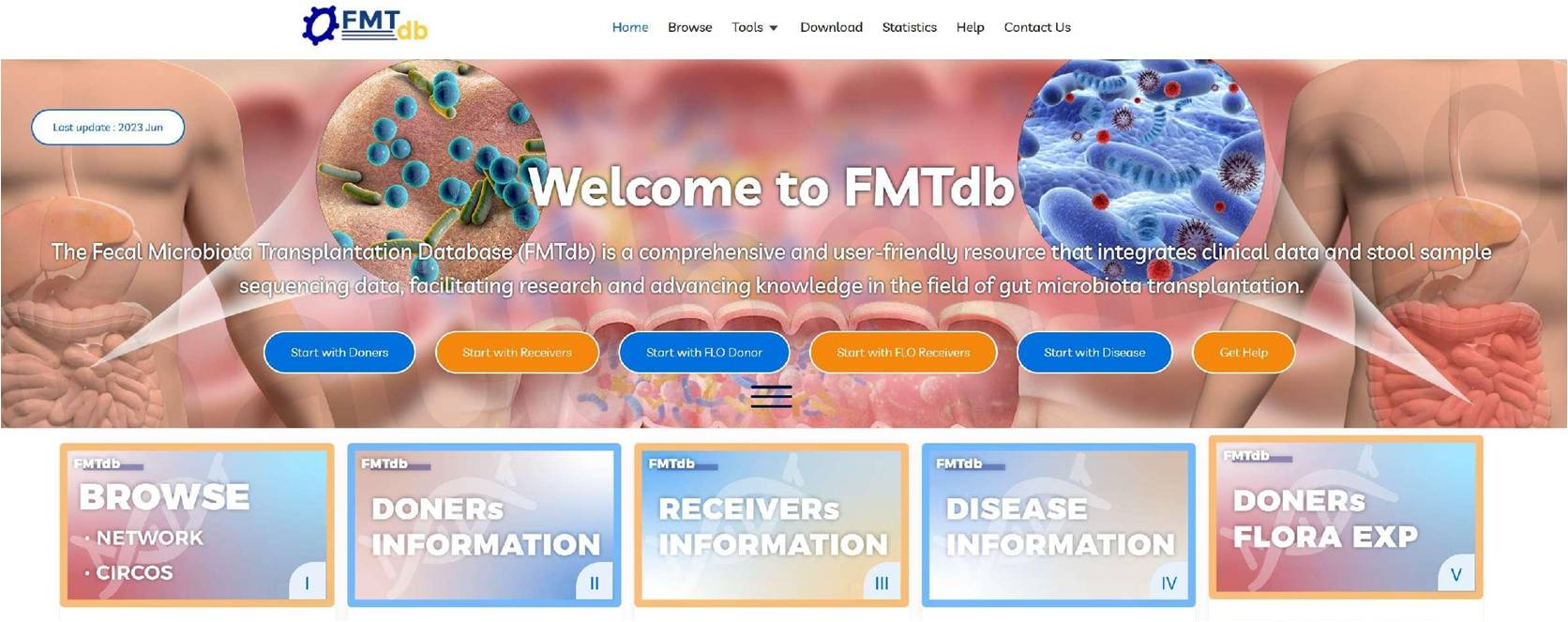
The database homepage features quick links to data and analysis functions, allowing users to conveniently access data visualization interfaces centered around donors or recipients and perform data analysis within the database.
The database allow users to download the processed data, which has been approved by the Ethics Committee, for further analysis.
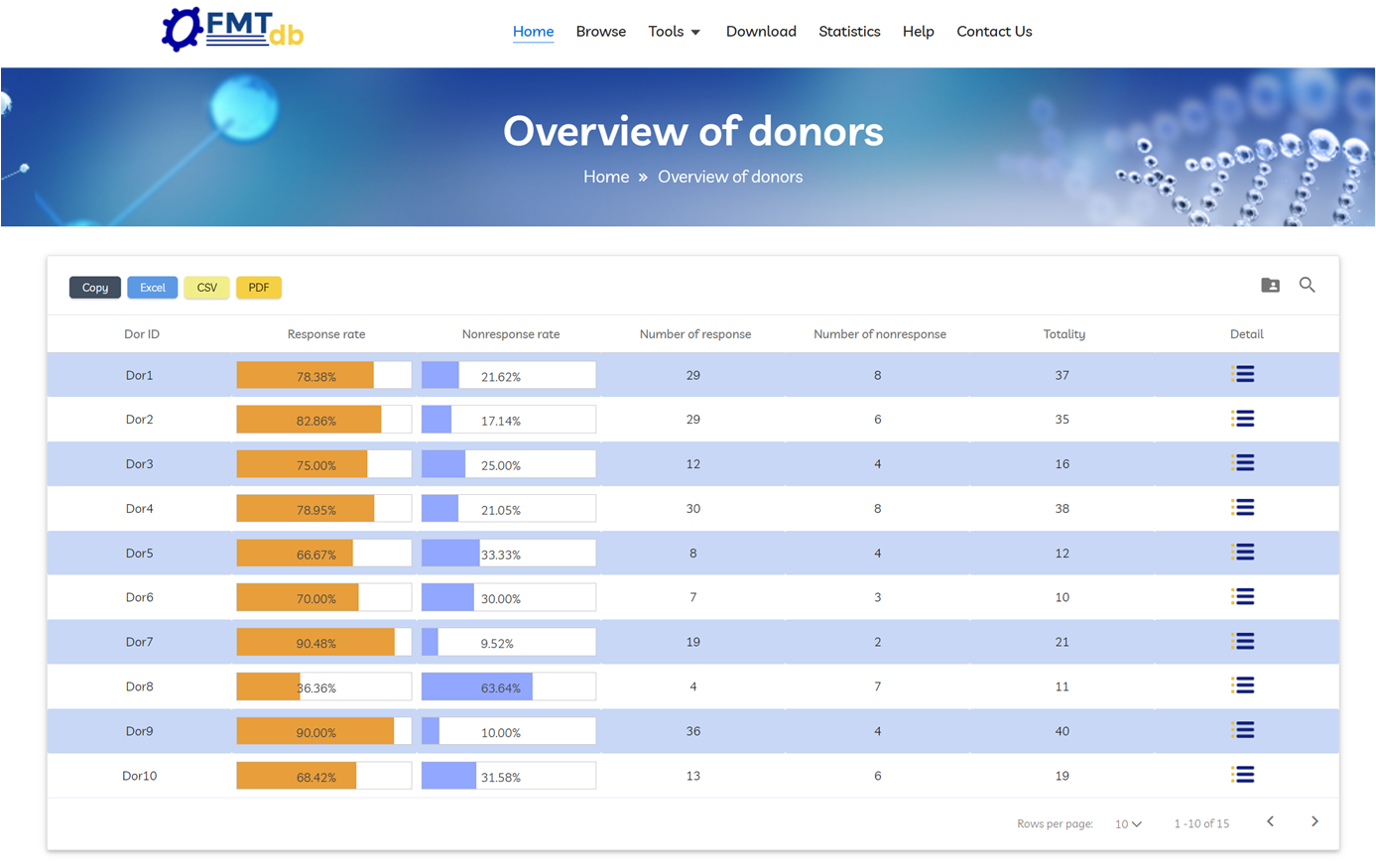
"Clicking on 'Start with Donors' takes you to the donor display interface, which shows the response rate and non-response rate of each donor transplant. Clicking on 'Detail' provides access to detailed information about each donor."
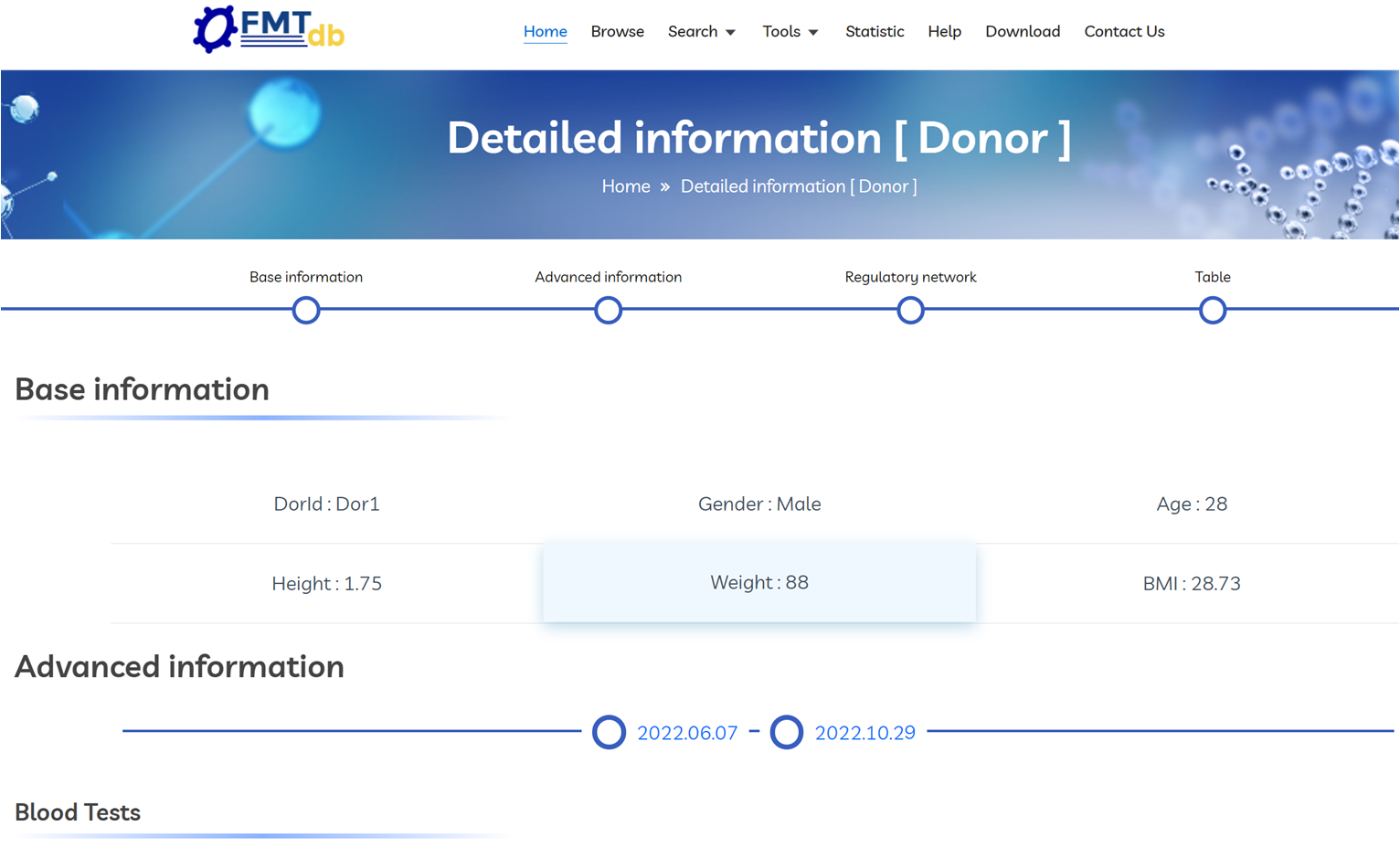
The donor profile interface includes basic information about the donor, medical examination results, information about the transplant recipients and diseases, as well as the microbial composition of the donated transplant.
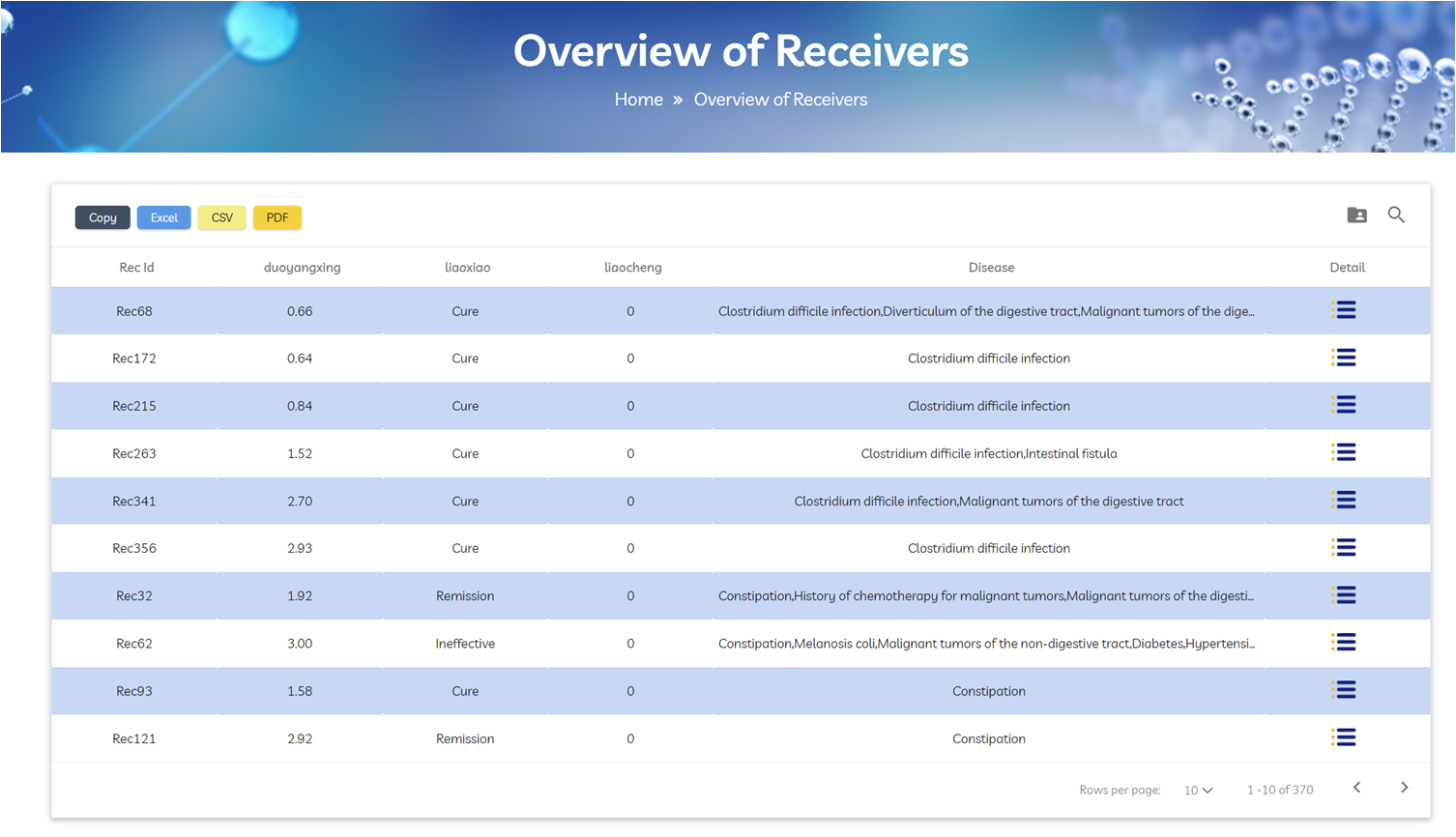
Click on 'Start with Receivers' to access the recipient display interface, which showcases information such as diagnosis, treatment course, and treatment efficacy for each recipient. Clicking on 'Detail' allows you to access detailed information for individual recipients.
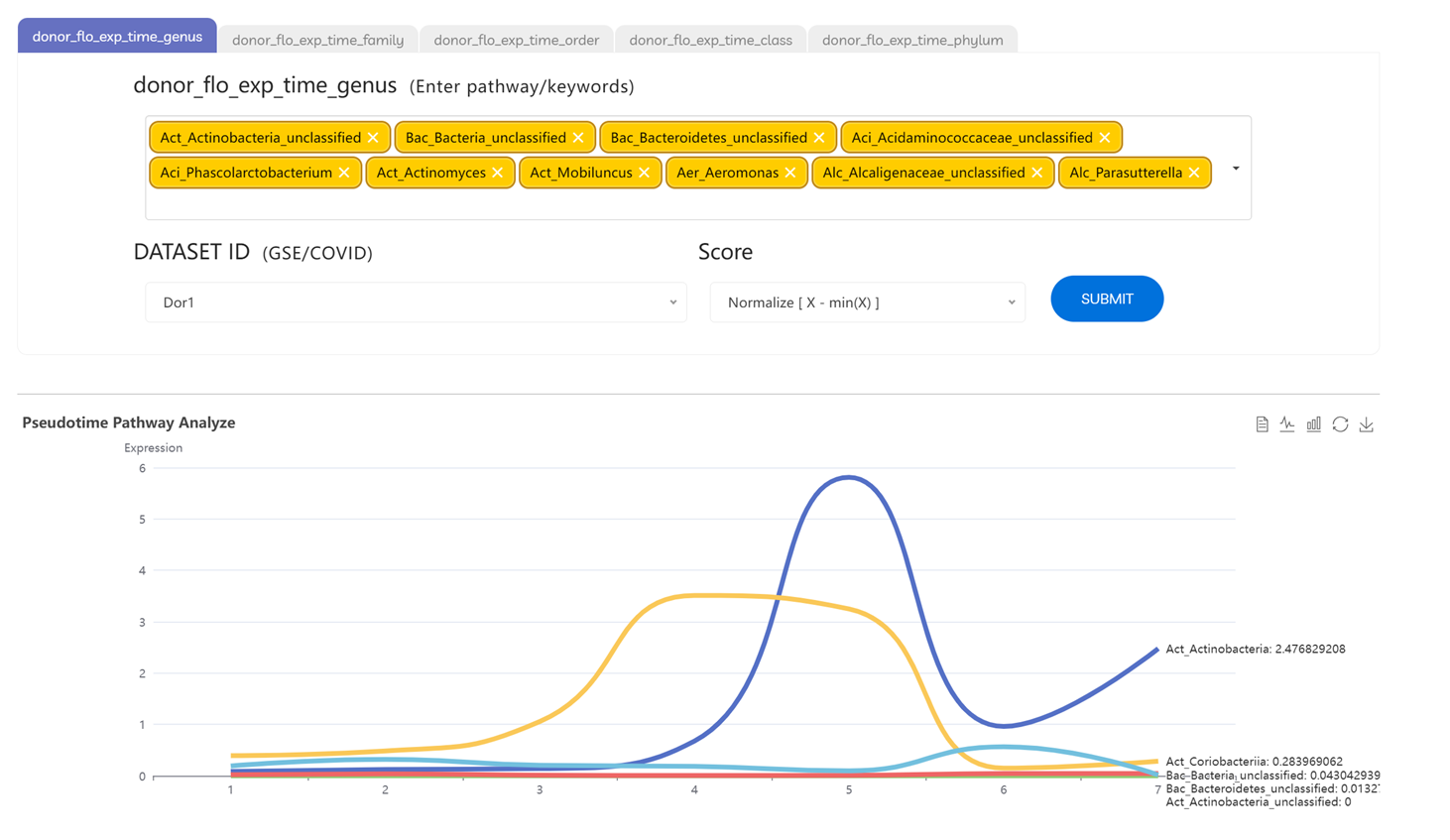
Click on 'Start with FLO' to enter the display interface for microbiota abundance changes, which showcases the fluctuations in gut microbiota abundance for different donors (recipients) across different time periods (treatment courses).
FMTdb places utmost importance on data protection and privacy. All personal identifiable information is anonymized and stored securely. Researchers must adhere to data usage policies and obtain proper authorization to access the database.
We welcome feedback and inquiries from users. For any questions or support requests, please reach out to our team through the contact information provided on our website. Your input helps us improve the database and enhance its usability for the research community.